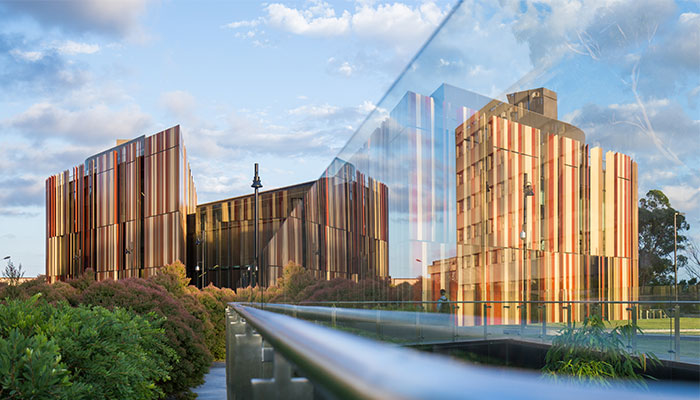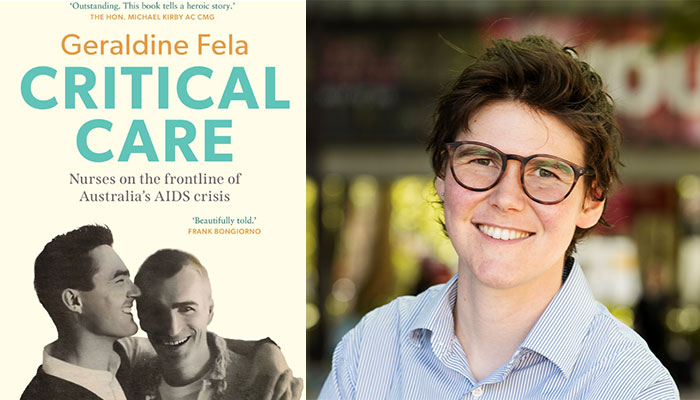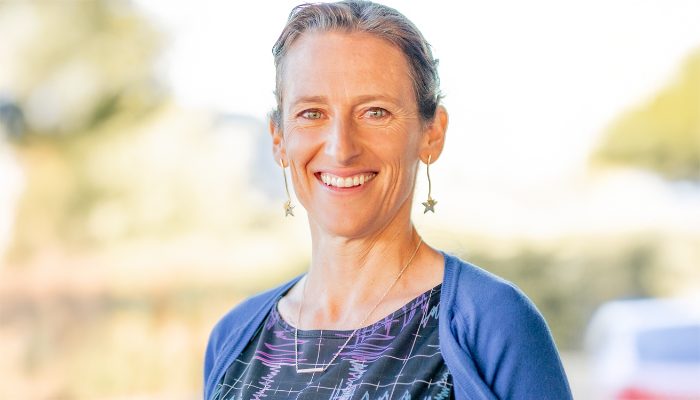Addressing a pressing issue
The varroa mite (Varroa destructor), first detected in New South Wales in June 2022, poses a severe threat to honeybees. This pest has been declared a national biosecurity concern, with significant efforts from federal, state, and territory governments to address the crisis. Varroa mites feed on honeybees, weakening them and potentially spreading harmful viruses, which can lead to colony collapse. (These viruses have not yet been detected in Australian hives.)
Current treatments are primarily chemical based, affecting both bees and their products. With the varroa mite now established in New South Wales, there is an urgent need for innovative, non-chemical control methods to protect Australian beekeepers and ensure the health of bee populations.
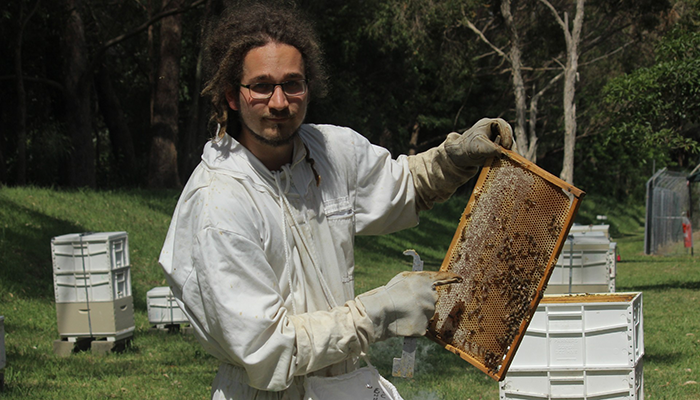
Image: Project lead Dr Théotime Colin, School of Natural Sciences
Innovative research and development
The five-year project, led by Dr Théotime Colin (Natural Sciences, Faculty of Science and Engineering) aims to create alternatives to manage the world’s most serious honeybee pest, as almost all current treatments put chemical pesticides inside beehives, impacting bees and leaving residues in honey and wax.
Professor Andrew Barron (Natural Sciences, Faculty of Science and Engineering) senior researcher on the project, says, “Early studies indicate that Australia may not yet have the most serious viruses spread by the mite in other parts of the world, giving us a critical window of opportunity to develop effective management techniques.”
The research team will focus on physical and mechanical control methods, consulting with beekeepers and peak industry bodies throughout the project to ensure solutions meet industry needs.
“Our goal is to develop effective, non-chemical control methods that Australian beekeepers can use to manage this destructive parasite,” says Dr Colin.
Proposed strategies include modifying hive environments, enhancing bee grooming behaviours, altering mite behaviour, and developing physical barriers to disrupt mite movement.
The project team from the School of Natural Sciences includes Dr Cornelia Sattler, who will lead beekeeper consultations and field days, and Casey Forster, who will conduct field trials and efficacy assessments. Dr Ryan Warren from the University of Tasmania will test the treatments' effects on bees in varroa-free environments and cooler climates.
Professor Sakkie Pretorius, Deputy Vice-Chancellor (Research) at Macquarie University, says, “This project demonstrates our commitment to addressing real-world challenges through innovative research that directly benefits Australian industries and ecosystems.”
Joe Skuse, Board member of the Ian & Shirley Norman Foundation says, “We are pleased to support this critical research that aims to safeguard Australia's honeybee population and the vital pollination services they provide before it is too late.”
The project will involve extensive collaboration with commercial and hobbyist beekeepers, industry bodies, and government agencies to ensure the developed methods are practical, affordable, and meet regulatory requirements.
Prototype testing will be conducted at Macquarie University’s Field Research Apiary, and promising methods will progress to field trials with beekeepers across various Australian environments.
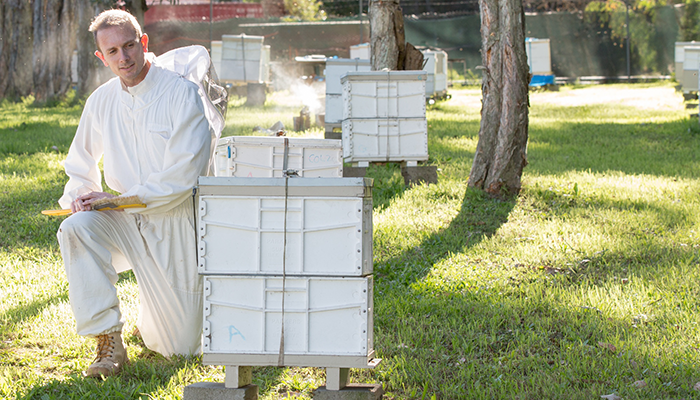
Image: Senior Researcher Professor Andrew Barron, School of Natural Sciences
The Ian & Shirley Norman Foundation’s vision and support
The Ian & Shirley Norman Foundation, established in honour of the late Ian and Shirley Norman, is committed to continuing their legacy of philanthropy. The Foundation supports initiatives that align with its core pillars: Being ecologically sound; Protecting people from harm; Walking together with traditional custodians; and Empowering communities. Tracy Norman, Founder & Chair of the Foundation, has a personal connection to this project due to her own experience with varroa mites in the Hunter region, and the subsequent destruction of her hives. Her dedication to finding sustainable non-chemical solutions and supporting Australian beekeepers is inspired by this experience.
For more information about the Ian & Shirley Norman Foundation and its mission, visit The Ian & Shirley Norman Foundation.

